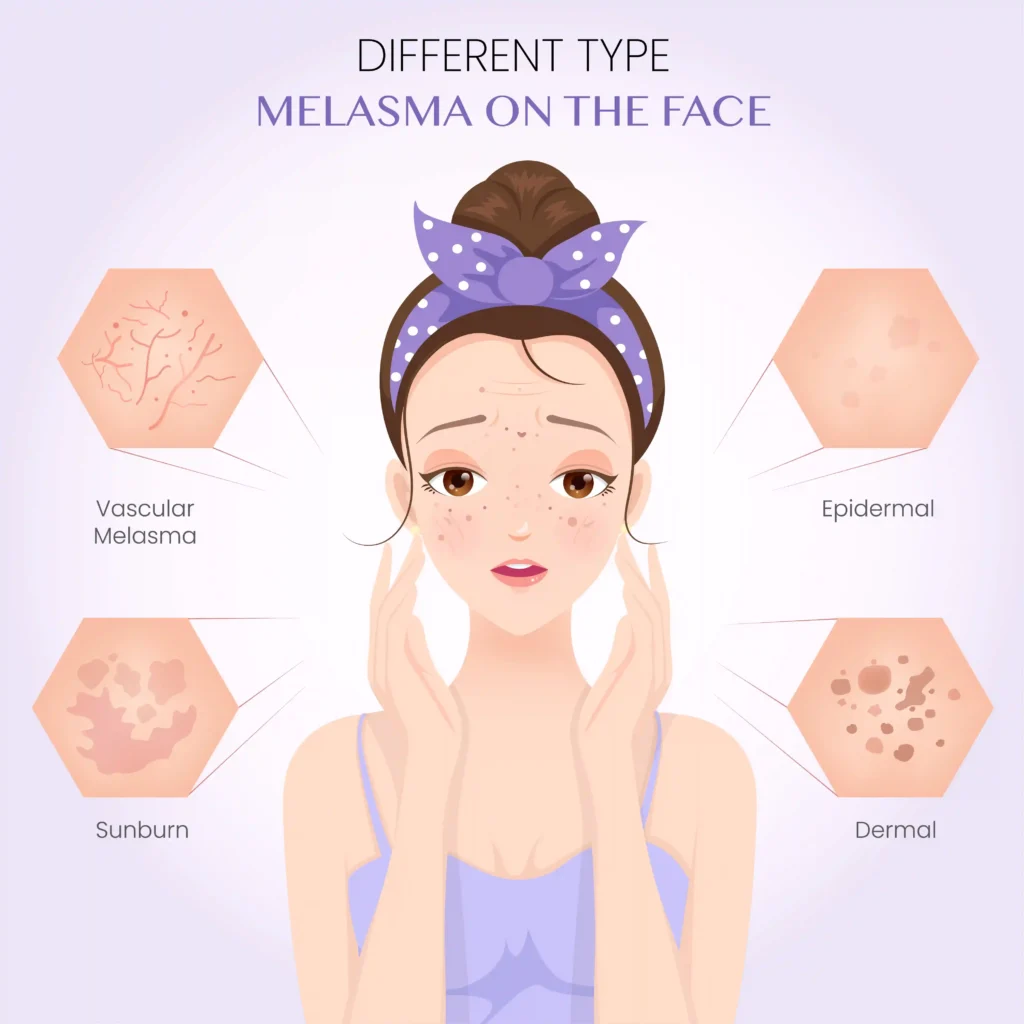
What Is Insect Bite Sensitivity
As of my last update in September 2021, “Insect Bite Sensitivity” is not a specific medical term or condition. It seems to be a phrase used to describe an individual’s heightened reaction or sensitivity to insect bites. People can react differently to insect bites based on their immune response and individual factors.
Some individuals may experience mild reactions, such as redness, itching, and swelling, while others might have more severe reactions, including extensive swelling, blistering, and even systemic symptoms like fever or difficulty breathing. In extreme cases, some individuals may experience anaphylaxis, a severe and potentially life-threatening allergic reaction.
What are the Types of Insect Bite Sensitivity?
When discussing insect bite sensitivity, it’s important to note that people can react differently to insect bites based on their individual immune responses and other factors. While there isn’t a specific classification system for “types” of insect bite sensitivity, I can mention some general categories of reactions that people may experience after being bitten by insects:
- Mild local reactions: Many people experience mild local reactions to insect bites. These reactions are characterized by redness, swelling, itching, and possibly a small, raised bump at the site of the bite. While uncomfortable, these reactions typically resolve on their own within a few days.
- Large local reactions: Some individuals may develop more significant local reactions. The area around the bite may swell considerably, extending beyond the immediate site of the bite. It may also become increasingly itchy and uncomfortable. Large local reactions can take several days or even weeks to subside.
- Systemic allergic reactions: In some cases, individuals can have an allergic reaction to insect bites. These systemic reactions can involve symptoms beyond the immediate bite area and may include hives, itching in other parts of the body, and even symptoms like difficulty breathing, dizziness, or swelling of the face, lips, or throat. Severe allergic reactions to insect bites can be life-threatening and require immediate medical attention.
- Anaphylaxis: Anaphylaxis is a severe and potentially life-threatening allergic reaction that can occur after an insect bite. It involves a rapid and systemic response that affects multiple body systems. Symptoms may include difficulty breathing, rapid or weak pulse, a drop in blood pressure, and loss of consciousness. Anaphylaxis requires immediate emergency medical treatment.

What are the causes Of Insect Bite Sensitivity?
Insect bite sensitivity or allergic reactions to insect bites occur when the immune system overreacts to the proteins or components present in the saliva or venom of the biting insect.
The immune system identifies these foreign substances as threats and releases chemicals, such as histamine, to defend against them. It is this immune response that leads to the characteristic symptoms of insect bite sensitivity. Some of the common causes and factors that contribute to insect bite sensitivity include:
- Genetics: Allergies and sensitivities, including those to insect bites, can have a genetic component. If there is a family history of insect bite allergies or other allergies, an individual may have a higher likelihood of being sensitive to insect bites.
- Previous Exposure: Repeated exposure to insect bites can sensitize the immune system and lead to increased sensitivity over time. People who spend a lot of time outdoors or in insect-prone areas may be more susceptible.
- Type of Insect: Different insects inject varying components with their bites or stings, which can trigger different immune responses. For example, mosquitoes inject saliva when they bite, while bees and wasps inject venom with their stings. Each of these substances contains unique proteins that can cause allergic reactions in susceptible individuals.
- Degree of Sensitivity: The extent of sensitivity can vary from person to person. Some individuals may experience only mild local reactions, while others may have more severe systemic reactions, such as anaphylaxis.
- Immune System Response: The way an individual’s immune system reacts to the components of the insect’s saliva or venom plays a crucial role in determining the severity of the reaction.
- Cross-Reactivity: In some cases, individuals who are sensitive to one type of insect bite may also react to bites from related insects due to cross-reactivity. For example, some people who are allergic to bee stings may also be sensitive to wasp stings.
- Underlying Allergies: People with existing allergies, such as pollen or certain food allergies, may have an increased risk of developing insect bite sensitivity. This phenomenon is known as the “atopic march.
signs & Symptoms Of Insect Bite Sensitivity
The symptoms of insect bite sensitivity can vary depending on the individual’s immune response and the type of insect involved. Here are some common symptoms that people may experience if they are sensitive or allergic to insect bites:
- Localized skin reactions: The most common symptom of insect bite sensitivity is a localized skin reaction at the site of the bite.
- Pain or tenderness: Some individuals may experience pain or tenderness at the site of the bite, especially if it’s a larger or more severe reaction.
- Hives: Insect bite sensitivity can lead to the development of hives (urticaria) in some people. Hives are raised, itchy welts on the skin that can appear around the bite site or in other areas of the body.
- Blistering: In more severe reactions, the skin around the bite may form blisters, which can be painful and may take longer to heal.
- Large local reactions: Some people may develop a larger area of swelling and redness around the bite, extending beyond the immediate site of the bite.
- Anaphylaxis: In severe cases, anaphylaxis may occur, which is a life-threatening allergic reaction that requires immediate medical attention. Symptoms of anaphylaxis can include a severe drop in blood pressure, difficulty breathing, loss of consciousness, and shock.
- Skeeter Syndrome: This term is often used to describe an exaggerated allergic reaction to mosquito bites. People with skeeter syndrome may experience very pronounced swelling, redness, and itching at the site of the mosquito bite.
It’s important to remember that individual reactions can vary, and some people may not have any noticeable reaction to insect bites.

Treatment for Of Insect Bite Sensitivity
Effective treatment of fungal infections involves a combination of antifungal medications, proper hygiene practices, and lifestyle adjustments. Seeking professional medical evaluation and treatment at Urban Skin & Hair Clinic is crucial for accurate diagnosis and tailored management. Here are the common approaches to treating fungal infections:
Wash the affected area with mild soap and water to remove any insect venom or saliva that may still be on the skin.
Applying a cold compress or ice wrapped in a cloth to the bite site can help reduce swelling and alleviate itching.
Over-the-counter creams or ointments containing hydrocortisone or calamine can help relieve itching and inflammation.
Taking oral antihistamines (e.g., cetirizine, loratadine) can help reduce itching and allergic reactions.
Try to avoid scratching the affected area, as it can lead to further irritation and increase the risk of infection.
If the bite is on an arm or leg, elevating the limb can help reduce swelling. For more severe reactions, especially those with systemic symptoms or signs of anaphylaxis, immediate medical attention is crucial. Emergency treatment may include:
- Epinephrine Injection: For severe allergic reactions or anaphylaxis, an epinephrine auto-injector (e.g., EpiPen) may be administered as the first-line treatment. This medication helps counteract the life-threatening effects of the allergic reaction.
- Emergency Medical Care: If anaphylaxis occurs, call for emergency medical help immediately. An individual experiencing anaphylaxis may require further medical interventions, such as IV fluids, oxygen, and other medications to stabilize their condition.
For individuals with recurrent or severe insect bite sensitivity, an allergist or immunologist can be consulted for a comprehensive evaluation. Allergy testing can be conducted to identify specific allergens responsible for the reactions.
It’s important to note that not everyone will develop insect bite sensitivity, even after multiple exposures


